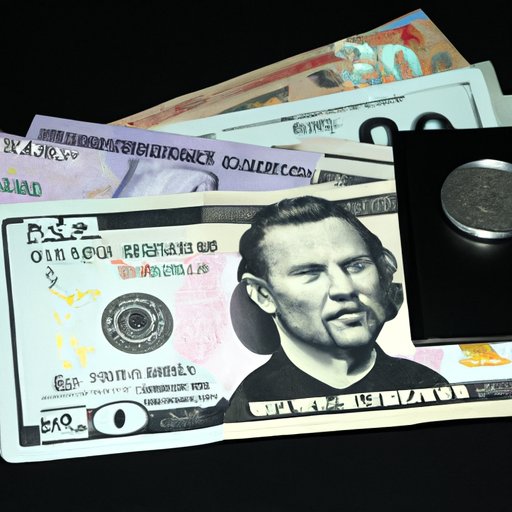
Introduction
Are you one of the many people who has unclaimed money waiting for them? It’s more common than you might think. Unclaimed money can come from many different sources, including old bank accounts, insurance policies, and forgotten earnings. But you don’t have to leave that money on the table. In this article, we’ll cover everything you need to know about accessing your unclaimed funds, from where to look, to how to claim them, to expert advice from financial professionals. Let’s get started!
Unclaimed Money: How to Find and Claim What’s Yours
First things first, let’s define unclaimed money. Unclaimed money is any financial asset that has not been claimed by the rightful owner or their heirs for a certain period of time. Common examples include dormant bank accounts, unclaimed tax refunds, and uncollected insurance benefits.
Now let’s look at some effective ways to search for unclaimed money:
- Use online databases like www.unclaimed.org or www.missingmoney.com.
- Check with your state’s unclaimed property agency.
- Contact financial institutions directly, such as banks, insurance companies, or brokerage firms.
Once you’ve found unclaimed money that you believe is yours, you’ll need to prove your ownership of the asset and file a claim. Every state has different requirements for filing a claim, so make sure to follow the instructions carefully. Check the state’s unclaimed property website for more information.
The Top 5 Reasons Why You May Have Unclaimed Money (And How to Claim It)
Here are the top five reasons why you might have unclaimed money:
- You moved and forgot to update your address with your financial institutions.
- You inherited money, but the estate was not settled correctly.
- You were due a refund or rebate but never received it.
- You overpaid on a bill or account and the credit was not applied.
- You left a job and didn’t claim your final paycheck or retirement benefits.
If you believe you have unclaimed money due to any of the above reasons, here’s what you should do:
- Contact the financial institution or company directly to inquire about the unclaimed money.
- Find out the specific steps you need to take to claim the money.
- Fill out any necessary forms or paperwork.
- Gather any documentation that proves your ownership of the asset, such as a death certificate or identification.
Your Guide to Claiming Unclaimed Money: Expert Advice from Financial Professionals
We reached out to several financial advisors and professionals for their tips on how to claim unclaimed money. Here’s what they had to say:
- Don’t pay someone to find your unclaimed money for you. There are plenty of resources available for free online.
- Stay organized and keep track of every step of the claims process.
- Expect the process to take time, as states and financial institutions can be slow to respond.
- Be persistent and don’t give up. You have every right to claim what’s yours.
Remember that you don’t have to go through the claims process alone. Consult a financial advisor or attorney if you need help or have questions.
How to Claim Unclaimed Money: A Step-by-Step Guide
Here’s a step-by-step guide to claiming unclaimed money:
- Search for unclaimed money using online databases, state agencies, or by contacting financial institutions directly.
- Verify that the unclaimed money is yours by gathering documentation such as a photo ID, proof of residency, and proof of ownership of the asset.
- Submit a claim form to the relevant financial institution or state agency.
- Wait for the claim to be processed. This can take several weeks to several months.
- If the claim is approved, follow the instructions for receiving your money.
5 Hidden Sources of Unclaimed Money You May Not Know About
Here are some less well-known sources of unclaimed money you could be owed:
- Forgotten storage units: If you failed to pay rent on a storage unit, the contents may have been auctioned off. But if the proceeds exceed the balance due, you may be entitled to the extra funds.
- Old payphones: If you owned a payphone between 1990 and 2000, you may be due a portion of the settlement money from a class action lawsuit. Visit www.payphone-settlement.com for more information.
- Uncashed checks: If you received a check and forgot to cash it, you may still be able to do so.
- Abandoned safe deposit boxes: If the lease on your safe deposit box expired and you didn’t renew it, the contents may be turned over to the state.
- Retirement accounts: If you had a 401(k) or other retirement account at a previous job, you may have left money behind.
Don’t miss out on unclaimed money from these sources. Take action and claim any funds you may be owed.
The Dos and Don’ts of Claiming Unclaimed Money: Expert Advice to Guide You
Here are some key tips to follow and pitfalls to avoid when claiming unclaimed money:
- Do use free online resources to search for unclaimed money.
- Do stay organized and keep track of all paperwork and correspondence.
- Do be patient, as the claims process can take time.
- Don’t pay someone to find your unclaimed money for you.
- Don’t give out personal or financial information over the phone or via email, as scammers may try to take advantage of you.
Be cautious and remember that you have every right to claim what’s yours. Don’t let scams or misinformation prevent you from accessing your unclaimed funds.
Conclusion
Unclaimed money is more common than you might think, and it’s important to try and claim any funds that may be owed to you. From finding and verifying unclaimed money to navigating the claims process to avoiding scams, this guide has covered everything you need to know to unlock your lost treasure.





